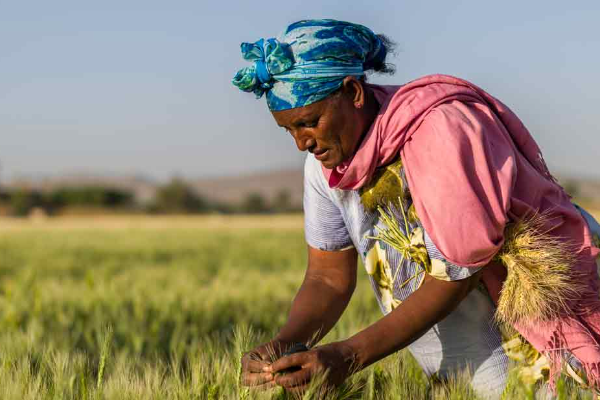The government of Ethiopia in collaboration with the African Development Bank Group has launched a $94 million climate resilience project to boost the wheat value chain in the country.
The project dubbed Climate Resilient Wheat Value Chain Development (CREW) has been termed an ambitious one aimed at transforming Ethiopia from a wheat importer to a self-sufficient producer and exporter.
It will be executed in partnership with the Netherlands, fertilizer company OCP-Africa, and the Global Center on Adaptation (GCA).
In this, the African Development Fund (ADF), the concessional arm of the African Development Bank Group, is providing a grant of $54 million. The Netherlands will contribute a grant of $20 million, while OCP-Africa and the Government of Ethiopia will each provide grants of $10 million.
Additionally, the Global Center on Adaptation (GCA) will extend a grant of $300,000 for the project as part of the Africa Adaptation Acceleration Program initiative (AAAP). AAAP is integrating climate risk assessment and digital adaptation solutions into the wheat value chain, supporting capacity building through deployment of digital climate advisory services (DCAS), and co-designing digital adaptation solutions in a wheat farmer registration system.
The financing will support 500,000 smallholder farmer households in the Ethiopian states of Afar, Amhara, Oromia, and Somali, to increase wheat productivity from three to four tons per hectare, generating an additional 1.62 million tons of wheat. The project will also support expansion of irrigation into the lowlands of Afar and Somali regions. It is expected to benefit 2.3 million people, 50 percent of them women, by increasing household incomes, creating jobs and entrepreneurship opportunities, and strengthening food and nutrition security.
The CREW project has two main components. The first focuses on improving wheat farming using climate-friendly methods by developing better seeds, enhancing soil health, building irrigation systems and access roads, and promoting sustainable farm mechanization. The second component expands post-harvest and market infrastructure and facilitates access to agri-finance through innovative mechanisms.
Launched in Semera, Afar Regional State in May, the project was officially inaugurated by Ethiopia’s Minister of Agriculture, Dr. Girma Amente. He highlighted agriculture’s vital role in the Ethiopian economy, contributing over one-third of GDP and employing 65 percent of the population. Dr. Amente emphasized that wheat is a priority crop in the Government’s Agricultural Development Plan and noted that the CREW project aligns with over 80 percent of Ethiopia’s Ten-Year Development Plan objectives.
Afar Regional State President Mr. Awol Arba welcomed the project’s potential for irrigated wheat development in his state. Dr. Abdul Kamara, the Bank Group’s Deputy Director General for East Africa, stated that the CREW project complements the Bank’s $1.2 billion investments in Ethiopia, aimed at accelerating the country’s economic transformation.
Mr. Tiest Soondal, Deputy Head of Cooperation at the Netherlands Embassy in Ethiopia, reaffirmed the Netherlands’ commitment to addressing humanitarian, development, and food security goals through the CREW project. Dr. Mohamed Anouar Jamali, CEO of OCP Africa, mentioned that the project will address soil salinity and acidity issues, provide science-based recommendations, and offer farmer training in best agricultural practices.








